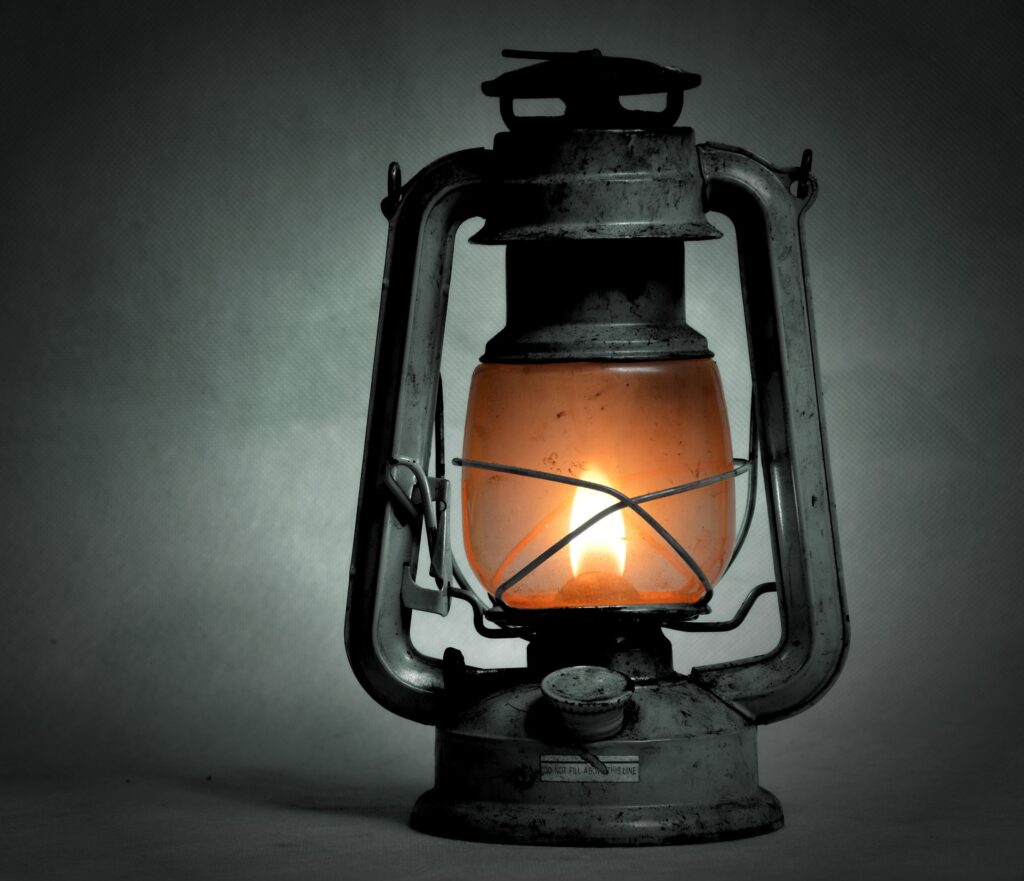Blog Posts
Worth is a Slippery Slope

If there’s a piece of psychology and coaching that will lead you down a half-truth path it is “worth” psychology.
What do I mean?
There are people who espouse the ideology that we get our worth from people and things. This is an “unhealthy” way to get worth. Christian coaches and psychologists will say that we should get our worth from God.
I’ve heard coaches using this paradigm to help clients see how they’re making their decisions. Or, even convince Christians that they’re not getting their worth from God, but from other things or people.
So…how is this paradigm a half-truth?
“Worth” psychology doesn’t fully understand how God designed the human heart.
God designed us to be in relationship. So, getting “worth” from someone who delights in you is natural and right.
So where’s the problem?
The problem lies with the word “worth”. “Worth” is really describing the internal feeling you receive of goodness, pleasure, and delight. “Worth” implies that you’re looking for something or someone to give you value. Christians will say, “Your value should come from God and nothing else.” But, that’s only half true. You’re looking for someone or something to fill a part of your heart that God designed it to be filled by.
It is good and right to get “worth” (feelings of delight, goodness, and pleasure) from your parents for getting an A on an exam. It’s good to pursue high standards of excellence in your work and feel good for doing so.
“Worth” thinking can become an entangling net that immobilizes people until they drown in confusion and misguidance of their hearts.
We were made to feel good for using our gifts, calling, and heart desires to help a world in need. We were made to feel secure in our parent’s love, even when we fail, screw up, or miss the mark. We were made to give and receive honor, delight, goodness, and pleasure. We were made to process, metabolize, and repair negative experiences, traumas, and relationships. We were made to think and feel in healthy ways that lead us to worship and honor the God of our souls.
But…if you approach the areas of your life from the framework of “where am I getting my worth,” it will lead you down paths that don’t give full freedom and life, only partial. “Where is my worth coming from” produces hyper-vigilance, questioning what is right to feel or think. If you continue with the “worth” framework, your ability to pursue God’s calling, performance in your vocation, relationships, thinking, feeling, and spirituality, will produce confusion, bondage, and death.
It’s Time to Build Your Ark and Fill Your Lantern


Key passages of scripture: Matthew 24:37-39, 25:1-13
I used to read passages of scripture with a lot of fear and anxiety because I knew I wasn’t really a “good Christian” (whatever that means).
I don’t anymore.
One thing that 2001 and 2020 taught me was that everything in the world seems naturalistic, and materialistic, until there’s suffering, trials, and tribulations. Because we’re so shallow as Christians in our relationship with God, few coped well with the Pandemic and Terrorist attacks. In 2001, people turned back to God and filled churches because they knew they needed help outside of themselves and awakened them to a spiritual reality. The Pandemic, however, did the opposite. People became more evil and rebellious. Few, coped well through it and still suffer from the affects of post traumatic stress. We have not been trained in the skills and ways of processing and metabolizing negative, traumatic events. So, it stays in our bodies and affects our health, performance, and relationships. Yet, Christians trudge on, as if they’re okay, things are okay, and there’s not much more to live for other than success, money, or the “American Dream.”
2020 really revealed to me how shallow my culture and American Christianity are. When the floods came and beat against the house, many houses fell because they were built on sand and not on the solid rock. If you don’t understand the analogy, the house is your being – your character, temperament, spiritual maturity, and quality of relationship with God and others. The flood was the virus that sent people and governments into panic, suffering, fear, stress, and anxiety. The sand represents that internally, leaders of nations, churches, and individual people didn’t have the fruits of love, joy, peace, patients, kindness, gentleness, and self-control within themselves to respond to the flood. These qualities would be produced from a house built on the rock of Jesus Christ. Instead, they had the fruits produced from hearts set on sand – the cares, desires, and drivenness for the things, affluence, and comfort that satan and the world deceitfully offer.
Are you doing the hard work of mourning and grieving the affects of shame, sin, and rebellion in your heart? The flood revealed the hearts of men and they refused to repent and turn to God for repentance, salvation, and resurrection. What keeps your heart from acknowledging, speaking, or naming your heartache?
If you don’t do this work with someone who is trained and can gain your trust, you will not be ready when the next flood comes. Are you prepared for the storm coming?
It’s time to build your spiritual Ark so that you can weather the storm. Build your house on the rock by revealing the contents of your deepest and darkest thoughts and emotions in your heart. Then allow grief, sorrow, and lament to bring you into the healing arms of Jesus so that you can be resurrected into a new spiritual character that loves and desires the things of God.
Are you secure in God’s steadfast love? Or are you still operating in fear that you haven’t done enough, aren’t good enough, or anxious that God will judge you?
Fill your lantern with oil so that when the bridegroom comes, you’ll be ready to enter with him (Matt. 25:1-13). When will you see the futility of the American Dream? “The one who through self-effort achieves success and makes his soul happy.” This is a partial, alluring truth, a delightful delusion, the workings of wickedness. Desire the spiritual food that comes from a broken and humble heart. Seek to know and desire God. Enter the chambers of your dark sin and the shame that imprisons you. Allow yourself to become broken, desperate, and needy that God might become your Savior.
This will build in you a spiritual Ark and fill you lantern that you might endure and gain Christ. The next flood is coming. Are you preparing for it?
Don’t Believe Everything You Think You See

We are prone to see what we want to see in other people.
Social media has ruined our understanding of good relationships because we can curate the narrative we show to everyone else.
If you’re looking at a person and you’re beginning to idealize them, stop and ask yourself:
- Has this person talked about his or her struggles in a kind, curious, and growth oriented way?
- How is this person presenting themselves? Are they happy, blunt, angry, sad, energetic, excited?
- What is attracting you to that person?
- What is this person’s brokenness and heartache?
Everyone is struggling with lust and murder. Everyone is searching and actively seeking some kind of fulfillment and goodness.
It is important to remember that we’re still spiritual, eternal beings created to have life in God. Any material gain or success doesn’t reveal who a person truly is. The person you’re idealizing is a sinner. In some area of his or her life, he or she is seeking life outside of God due to fear, jealousy, or envy.
It is a very good place to be when we begin to see people not for who they present themselves to be, but who they reveal their inner person to be. For a Christian, we are to regard no one according to the flesh. It’s easy to cover up our heinousness inside so that others think we’re great. But a person of character and true worth, who can find? They’re like diamonds hidden deep in the earth. Those who find them find goodness and a blessing from God.
Finding a Welcome Place at the Table: How We Live Enslaved to Wicked Structures and How to Begin Listening to Our Souls.

If there’s one thing I am pissed off at it is the wicked structures in Christians’ thinking that avoid the reality of their pain. I hate that evil has so effectively penetrated even Christianity that the people who know God are still ignorant to their own depravity. I hate that these patterns and structures in Christians’ minds enslave them to abusive relational structures, idealization, and hatred in their hearts. They are in pain, yet their lifestyle, relationships, and clinical wellbeing keep them enslaved.
I want them to be free.
To my reader, I assume that you’re in more pain than you know and I feel it on your behalf. I don’t like feeling pain, but what I can’t stand even more is how much Christians become accustomed to living enslaved to their pain. Their lifestyle, their thinking, and their relationships have blinded them to their enslavement. But, they’ve learned to live with it and manage it. They’re not even aware of how bound and enslaved they are to wickedness because they’ve not been taught that their feelings are true, are telling them something true about reality, and are a signal to pay attention to what is going on in their souls.
If this is true of you, I beg of you, I BEG of you, give yourself permission and kindness to speak the truth of what you feel and think. Don’t dismiss it, minimize it, or explain it away with some positivity statement. Stop avoiding your emptiness and the ways you fill your emptiness. Lean into the conflict of confronting those parts of yourself you have denied, or the reality of the pain you’re in.
The hardest thing I have ever done with my wife is go to counseling. I understand why most people don’t go to a counselor. You’d be admitting that you don’t have life together, you’re not okay, and you’re to the point that professional help is needed. There’s a lot of shame and fear that prevents people from going.
Unfortunately, that is exactly what you need to engage. You need the help of another person to name and engage your fear of feeling shame and fear. You need someone who can listen to your life’s story and help you through the confusion and purposelessness of a fragmented and disintegrated narrative. If you want to live a life of purpose for God’s glory, fulfilled, full of joy, dignified, and delightful, you are going to have to learn how to suffer through the heartache, pain, sorrow, grief, rage, anger, and lethargy you have dissociated from. You keep telling yourself, “It’s okay.” But you have sin, and you have not learned or experienced the truth and kindness of God’s healing touch. Those who say they have no sin, lie and deceive themselves. They believe they need no help, have no real problems or issues, and keep all their unwanted feelings buried inside. They become part of Christian communities that also “have it all together”, but never go deeper below the surface into their deep depravity of what they worship and how they murder in their hearts. Why? Because of the shame and uncomfortableness it creates in other people when we expose our burdens that are heavy. When we open up and begin confessing to other Christians our deep, deep struggles, they’ve not been able to bear our big emotions. So, they patronize us and our struggle. They quote the promises of God. They try to “rescue” us out of our strong emotions. Why? Because they cannot bear to feel what we’re struggling with since they would have to feel their own buried feelings.
But that is not the gospel! Jesus suffered, was betrayed, rejected, and abandoned. Then he was crucified, mocked, scourged, whipped, and nailed naked to a cross. It was necessary that this happen for our sakes. He knows our suffering and pain. He knows our anger and rage. He knows our betrayals, how others have rejected us, and how we have been abandoned by those we needed most. It is in the crucifixion that you and I are invited to learn Jesus’ suffering and how he did not revile in return, turn to self-contempt, hate others, escape his pain through addictions, or murder his enemies in his heart and mind. This is what the crucifixion invites us into. It invites us into the death of our carnal, fleshly selves that seek to be self-dependent, self-fulfilled, self-sufficient, and self-determined. And when a person becomes open and vulnerable about their struggle, this is where we need to go: into mourning and grieving the pain together – not minimizing it, not explaining it away with positivity scriptures, and not trying to rescue it. It is sitting in the dirt and lamenting with the person. It is being angry and expressing rage on their behalf for the wicked injustices he or she has suffered.
Please, stop living enslaved to pain and wickedness. Expose the darkness in your heart. Expose the reality that “trying harder” or “doing better” isn’t working. You won’t find fulfillment in longer hours at work, more money to spend, or better sex with your spouse. These are the gods that our culture worships. But you, you are to worship the all powerful, almighty God and Father of your soul. He jealously yearns to have your delight, affection, and worship. He wants to save you, redeem you, and satisfy your soul with his love. Don’t you long for rest? He can satisfy you, but it is through crucifixion, pain, suffering, and death that we find resurrection and life with God.
So, my call to you for your next small growth step in your healing journey it this: dedicate one hour to sit in a place you won’t be disturbed. Cut out distractions from people, noises, and the internet. In that hour, begin writing down what comes to the surface in your thoughts and emotions. Don’t judge them, suppress them, or burry them. Give them a voice and don’t be afraid of them – God isn’t. Let them sit at your heart’s table and have a voice without judgment. What do they say? What do they feel? What do they want? What do they need?
What to Do When a Relationship Ruptures: an Exploration of Faith, Hope, and Love in the Gospel

The hardest part of writing a blog is just writing it.
I’m a doer. I interact with the physical world. My brain and my body are geared around this.
But having to type words to describe in a two dimensional way what I do in three dimensions seems unproductive, arduous, and inconceivable. Action and thought are polar opposites. Yet, they say it’s good for you to journal, read stories, and write.
So…what do I write?
Usually, I write about whatever new thing I’m learning or whatever new injustice or corrupt system I’m angry at. I desire to bring change to the world and I usually see so much injustice that I feel overwhelmed by the shear enormity of its unsolvability. Even after I try to come up with solutions of how to help people change, in the end, I know it doesn’t matter because there will still arise other injustices in its place. So, what’s the point?
The point is that I’m at war with hope and despair. I’m 34 years old and I’ve experienced enough heartache to stop hoping that there will be goodness, delight, pleasure, satisfaction, and fulfillment in relationships. There’s too much pain from people who lust and murder in their hearts, which comes out in damaging behaviors, words, and ruptured relationships that never repair.
How often have I experienced a relationship shatter when conflict and hurt are unresolved. Or, when someone is offended or hurt without my knowledge and suddenly the relationship changes. I’m left wondering what happened. But will he or she be able to repair? Does the person have the capacity to repair by owning failures, attuning to the hurt, or bearing the effect I experienced without going to contempt? Probably not.
This leaves me very desperate, despairing, and hopeless that I will find goodness in friends and loved ones.
…
…and yet, there’s still hope. But will my hope be fulfilled, or is it just a figment, a vapor, or an illusion…maybe even a delusion to hope again?
I need the help of faith and trust to come along side of my wavering hope and help it along. But here again lies a dilemma. Who can be trusted? They’ll all eventually hurt me. But will they be able to repair? …In my experience: no.
So how can I love if I don’t have the bedrock of faith and hope?
How does Jesus restore faith, hope, and love?
If evil and satan assault faith through betrayal, then how does the gospel restore faith and trust?
If evil brings about the loss of hope through disappointment, futility, and despair, then how does the gospel restore a belief that there will be goodness, pleasure, and delight in the future?
If evil seeks love’s destruction through contempt, blame, emptiness, idolatry, and murder, then how does the gospel redeem joy, delight, honor, and goodness?
FAITH ASSAULTED
Look at the story of Jesus in Gethsemane right before he is given over to the religious leaders for trial. Jesus’ trust in his disciples, in his Father, and his enemies is under attack. When Jesus needed his disciples there for him during his darkest and most troubling time, his friends were weighed down with anxiety. Jesus was in distress and his soul greatly troubled. His friends didn’t know how to engage with him in prayer. Jesus experienced his friends abandoning him in his darkest hour.
Now, I don’t know about you, but if I were Jesus, right about then I would’ve been so hurt by my friends that I would’ve turned against them in anger for not being there for me like I needed them to be. And Jesus felt hurt. He didn’t deny it. Jesus’ own words to his disciples were, “…could you not spend one hour praying with me?”
Jesus’ trust in his Father was under attack and is expressed through Jesus’ words, “If it’s possible, let this cup pass from me. Yet, not my will, but your’s be done.”
FAITH RESTORED
So, how does Jesus’ crucifixion restore trust? Trust is restored because Jesus is resurrected from the dead. Jesus resurrects trust because God’s promises and prophesies are true! God’s track record is 100%. And, he restores trust in those who abandoned him by repairing the relationships with each disciple.
HOPE ASSAULTED
Evil assaults Jesus’ hope through a prolonged and intense mocking, unjust prosecution, and crucifixion. Evil attempted to blot out Jesus’ hope that what he was doing was for a greater purpose. And in the midst of it all, he didn’t reject those who rejected him. He rejected the religious leaders’ vows and covenants to maintain their positions of power and authority. Why? Because the religious leaders of Jesus’ time enslaved people to wicked religious structures of legalism, do’s and don’ts, and bondage to shame.
HOPE RESTORED
The gospel restores hope through the resurrection of Jesus. Just when the worst has happened and all dreams and imagination have vanished. Just when the disciples’ hearts are vowing never to believe or hope again like they did that Jesus was restoring Israel, all their hopes and dreams were shattered. Their Messiah, Savior, and King, was murdered – dead. Jesus comes back to life and plays with his disciples through the humor of letting them discover who he is.
LOVE ASSAULTED
Jesus’ love for humanity is attacked on every front. His love for his Father, his love for his disciples, his love for his enemies, and his love for the world is attacked through evil. The temptation was to remove his love and become self-sufficient, self-preserving, self-serving.
LOVE RESTORED
Yet, he loved the world so much that he was willing to take the place I deserved as a substitution for the penalty of my failures. And not just mine – each and every person who has ever lived or will live. Love is restored through the very act of crucifixion, the hope of resurrection, and the joy of reigning with Christ.
And so, the application to my life of what to do about people who betray, reject, abandon, idolize, and murder me, is to remember what my God has created for me. It is to try again when there’s been a failure in a relationship. Yes, I need the help of wisdom to determine what type of person this is and his or her capacity to repair. Some people are not capable. But whether or not I can attempt to repair and re-establish faith, hope, and love in a relationship is provided through the empowering reality of Jesus’ life – the gospel. Who am I doing this for? Is it for me, or for my Lord, King, and Savior? Who do I fear – man, or God?